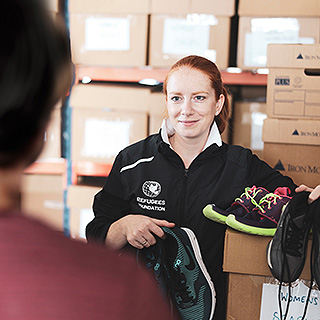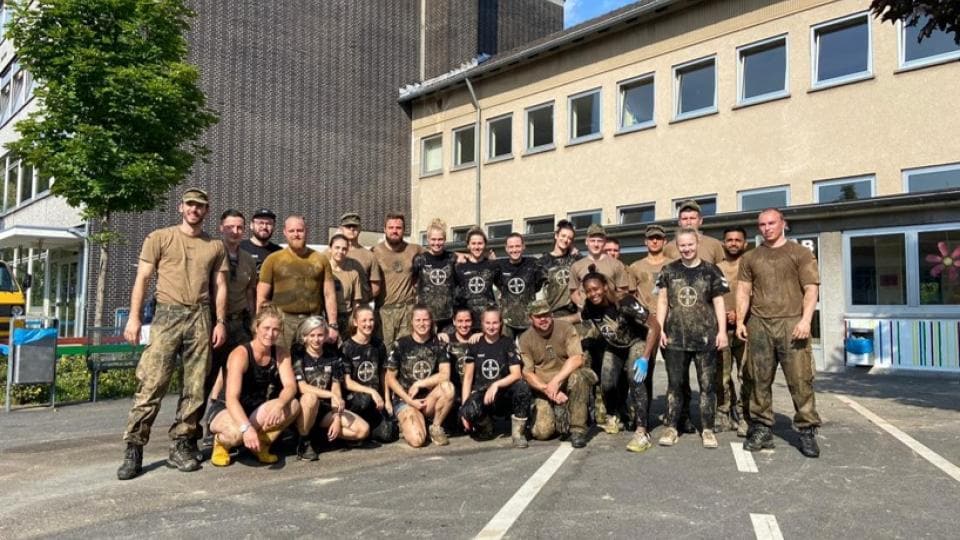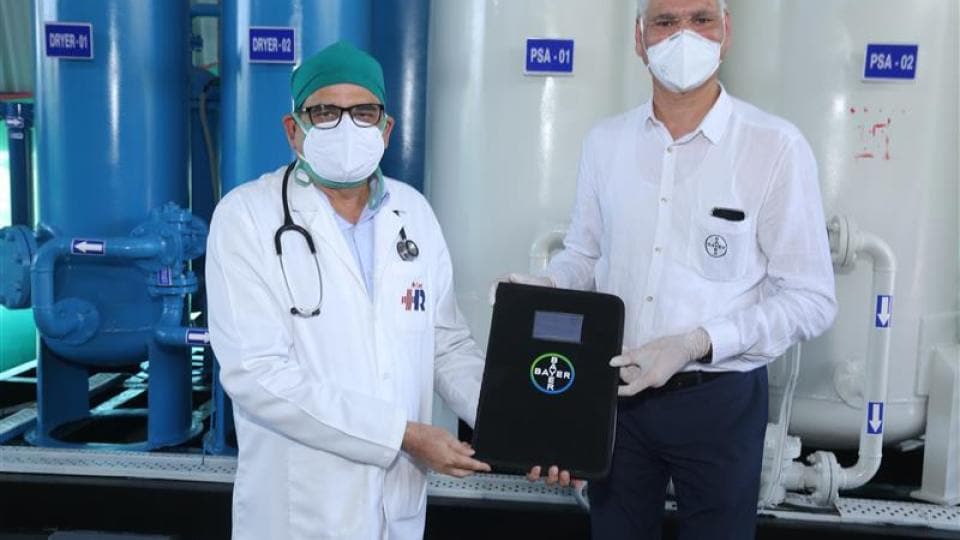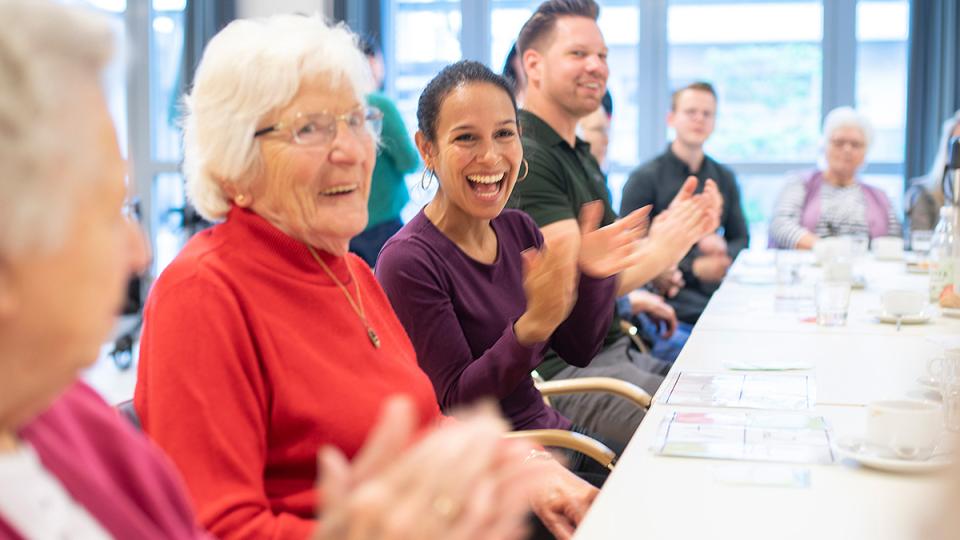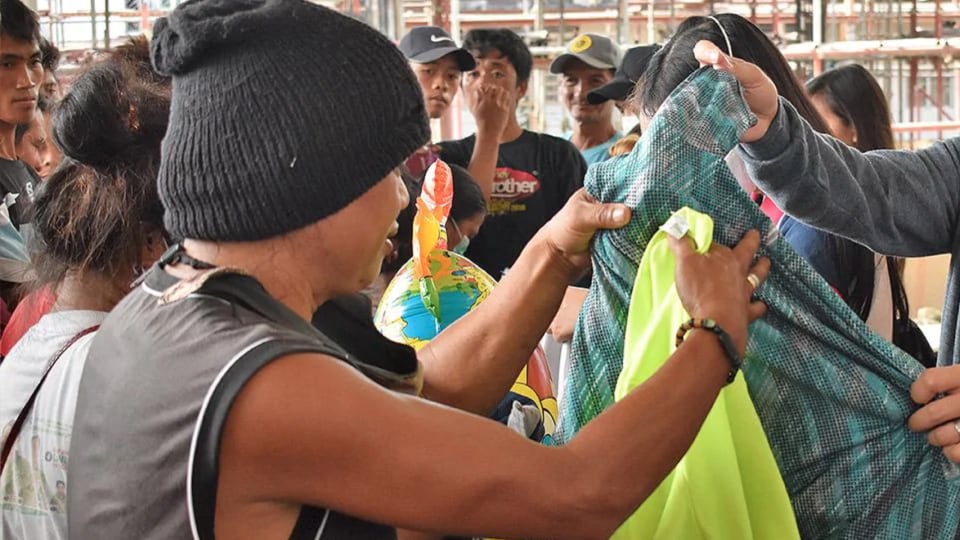“It Feels Good To Lend A Hand”

Philip Nellessen, IT expert at Bayer in Leverkusen, helps refugees. He talks about this work, which is also supported by the Bayer Cares Foundation, in an interview for Bayer Magazine.
Hardly any refugees are arriving in Germany anymore. Does that mean there’s not much left to do in terms of refugee assistance?
Philip Nellessen: No, there’s actually still a lot to do. The problem has moved, though. The misery is now happening on the borders to the EU. The agreement with Türkiye has made the borders harder to cross. People simply aren’t getting as far as Germany now. The camps in Calais and Dunkirk were terrible. But what’s happening in Türkiye and the reception camps on the Greek islands is even worse. It’s like a parallel world – and it’s kept so well hidden from the public that hardly anyone realizes what’s going on.
What is the situation in the refugee camps?
It’s disastrous. Thousands of people are living in tents in the dirt. Families with young children, children without parents. There isn’t enough to eat, there’s also a lack of clothing, warm blankets, toilets, water – and above all medication. The people are just surviving, but they have no hope. Some of them have been there for years. And now, in the winter, it’s bitterly cold and stormy on the Greek islands.
What can be done to help the refugees?
That has changed, too. Before, it was really useful when food or furniture was donated, but now the refugees are so far away. Driving food to the external borders of the EU is more expensive than buying it locally. It’s therefore become more important to donate money so we can buy food when we get there. That gives rise to another small problem, however. For many people, it’s easier to donate things rather than money. It’s easy to understand their reasons – it takes a lot of trust to donate money.
Which organizations will make good use of donations?
Of course, big organizations such as Sea-Watch and Médecins sans Frontières do great work. In Cologne, we also have a fantastic little organization called Refugees Foundation, where Bayer employees also volunteer. My colleague Daniela Neuendorf organizes convoys and is frequently on the road to offer humanitarian assistance. Most recently, she was working in the camp on Samos. Just like the others in the team, she gives up her vacation time. She pays for the flight and her accommodation out of her own pocket so as to help there and deliver medicines and other vital donations. She keeps doing it because she’s seen how great the need is, because she’s seen children dying. If anyone has any questions about the organization, those of us from the team will be happy to answer them.
What is your personal motivation to help other people?
It’s so easy to complain. But really, it’s much better to ask yourself what you can do to make things better, to take responsibility for our society. I’m of the opinion that everyone can do something – whether by giving a little time, or by donating money. It doesn’t necessarily have to be in refugee assistance. There are people in the “cold bus” who need help, too, homeless people need a warm meal, food banks need support. These days, it’s very easy to use social media to get organized. Helping other people simply feels good.
Bayer Supports Role Models
In 2018, Philip Nellessen received a contribution of EUR 5,000 from the voluntary program of the Bayer Cares Foundation for a Refugees Foundation convoy to Türkiye. Through this convoy, the organization delivered food, clothing and medicines to attenuate people’s hardship a little.









